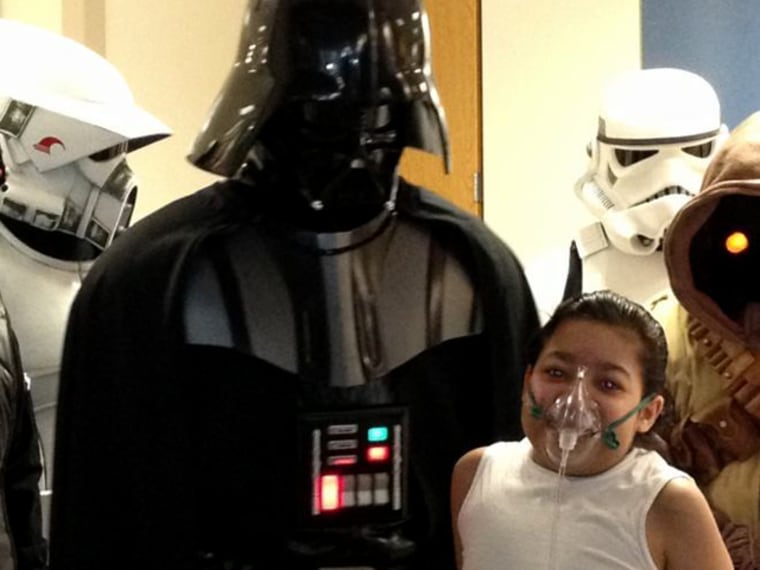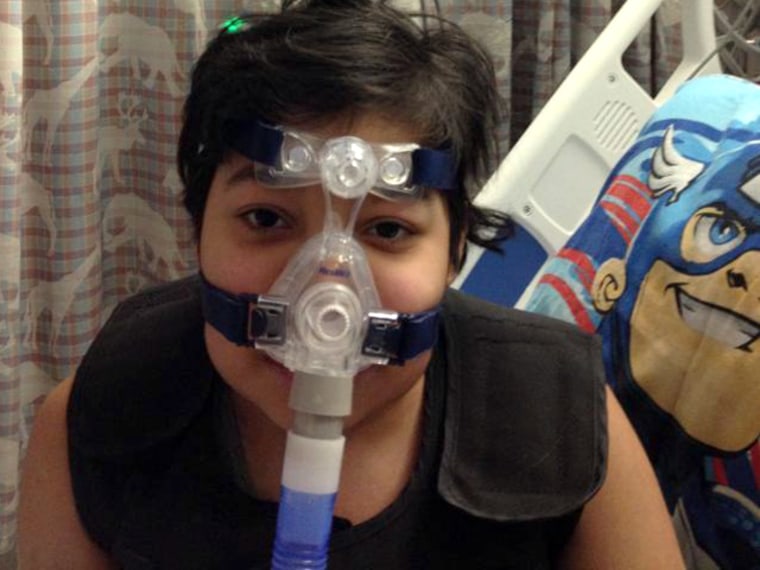The board overseeing organ transplants in the U.S. voted on Monday to allow special consideration for children needing lung transplants after the families of two dying children filed suit.
The decision walks a fine line, keeping the national Organ Procurement and Transplantation Network (OPTN) in charge of deciding who gets organs, while also allowing that certain kids may be more likely to die under the current system.
The OPTN board voted unanimously for a system that lets the childrens’ doctors appeal to classify certain children under 12 as adolescents. That gives them access to a larger pool of lungs available for transplant while ensuring that organs do not go to waste.
Dr. Stuart Sweet, secretary of the executive committee and director of the pediatric lung transplant program at St. Louis Children’s Hospital, said the media storm that’s surrounded the case has put the carefully balanced organ allocation system at risk.
“We can take steps to ensure that the next time this situation arises, the case can be heard in a more appropriate venue,” Sweet told a teleconference of the board.
"The policy provides for a lung transplant program to submit a request to a national lung review board for a candidate age 11 or younger to have an additional listing, at the same hospital, indicating that the candidate should be ranked among adults for offers from adult and adolescent donors based on the existing Lung Allocation Score," OPTN said in a statement.

"The pediatric candidate would also retain his or her priority for pediatric donors, which includes immediate access to matching donors within a 1,000-mile radius of the donor hospital."
Janet and Francis Murnaghan started the battle with a high-level media campaign to get a lung transplant for their daughter, Sarah. Sarah, who’s 10 and has cystic fibrosis, has been on the pediatric transplant list waiting for lungs since 2011.
A second mother, Milagros Martinez, filed suit on behalf of her 11-year-old son Javier Acosta, last week. Javier also has cystic fibrosis and has just weeks to live. His older brother Jovan died waiting for a lung transplant in 2009, her lawyers say.
The suits object to a tiered system that OPTN set up in 2005. It divides children needing transplants into age groups – 0 to 5, 6 to 11 and 12 to 18. Adults 18 and over all get grouped together. Lawyers for the families said the system penalized certain kids who were under 12 but large enough in size to get adult or teenage-size lungs.
A judge agreed with Murnaghan’s family and ordered Health and Human Services Secretary Kathleen Sebelius, whose department oversees The United Network for Organ Sharing and the OPTN, to suspend existing organ allocation rules. HHS did so and when Martinez filed suit, HHS suspended the rules for Javier, also.
"We're not trying to skip ahead of anyone," Martinez said at a news conference Saturday. "We just want him to have a fighting chance."
Sweet said the data did suggest kids in the 6-11 age group waiting for a lung transplant have a higher mortality rate than older children. He proposed the interim measure.
“This does not grant any patient access to the adult allocation tier," he said. It simply allows the transplant team treating the patient to petition the OPTN’s review board.

"It is not immediately known how many candidates may be considered for this option. According to OPTN data, only one lung transplant in the United States has occurred from a donor older than age 18 into a recipient younger than 12 since 2007," UNOS said.
Bioethicist Arthur Caplan, director of the division of medical ethics at NYU Langone Medical Center and a frequent NBC News contributor, said the board's decision seemed like a good solution.
“Ironically, the lawsuit is pushing the policy,” said Caplan. “They are trying to preserve the integrity of the UNOS system for distributing organs, and trying to acknowledge that Sarah and her family have a point.
“They were very worried that they not open the floodgates to all kinds of people who need all kinds of organs to start going to Congress or to judges or the secretary of HHS.”
UNOS says the bigger problem is there are not enough organs available for donation. As of Monday, 75,655 people were actively waiting for organs. When organs become available, they are offered based on geography, tissue match, need and age.
“The biological needs and circumstances of candidates younger than age 12 are different from either adolescent or adult candidates,” UNOS says in a statement.
“One key difference is the size and lung capacity of donors and patients among these age ranges. For this reason, lung allocation policy differs for these groups of candidates and is designed to suit their unique needs,” it adds.
“Children younger than age 12 have priority for all donors of similar age and size within a 1,000-mile radius before any older candidates would be considered. In some circumstances, a transplant center may determine that a child's condition warrants a reduced size transplant from an adult donor. If the center wishes to consider this additional treatment option, these children will have access to adult organs once they are offered to adolescents and adults in the same allocation zone.”
Related:
Transplant experts debate new rules
